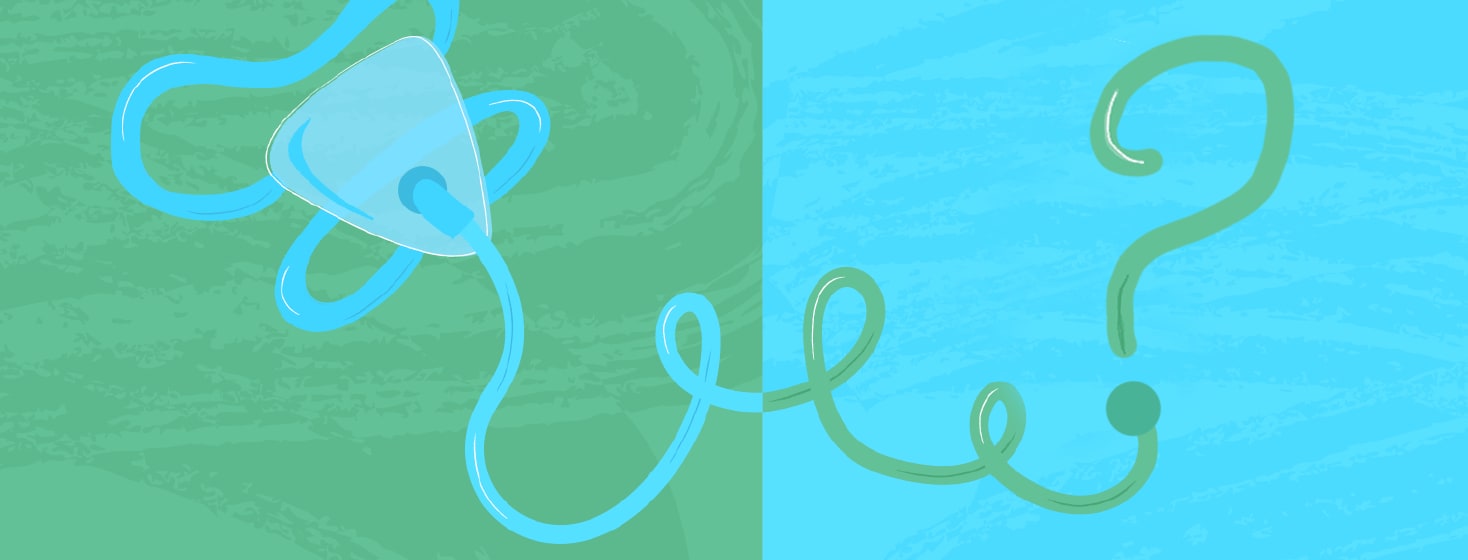Sleep Apnea: The Diagnosis I Ignored for 10 Years
Almost 10 years ago, my dentist, of all people, suggested I might have sleep apnea. He even arranged a sleep study, but I declined at the time. He explained that asthma alone put me at high risk for sleep apnea and noted signs of teeth grinding, which reinforced his concern.
That conversation stayed with me for years, even though I brushed it off at the time. Fast forward to a year ago, when I was experiencing extreme fatigue. I started to wonder if my dentist had been right all along.
I asked my PCP if I might have sleep apnea, and he said something along the lines of, “Probably not.” Still, I pushed for a referral to a sleep specialist for a sleep study, and he agreed.
This moment was pivotal because, without my persistence, the study might never have happened – especially since I no longer saw the dentist who initially suggested the home sleep study.
The sleep study
The sleep specialist explained that there are 2 types of sleep studies:
- A home sleep study, which is less invasive but less detailed
- An in-lab sleep study, which provides more precise data
Because I have asthma, my insurance approved the in-lab study immediately. The sleep specialist confirmed that asthmatics are at higher risk for sleep apnea, validating my dentist’s earlier concerns.
At the sleep lab, the process was both fascinating and a bit daunting. The sleep tech, a fellow respiratory therapist, walked me through the setup. I was hooked up to several monitoring devices:
- Electrodes on my head to track brain waves (EEG)
- Wires on my chin to monitor jaw movements
- Leads on my chest to track heart rhythms
- Sensors on my legs to detect restless leg movements
- A pulse oximeter on my finger to monitor oxygen levels
- A nasal cannula to monitor airflow
Despite having all this equipment attached to me, I managed to sleep for my usual 5 hours.
The results
A few days later, I received the results. I had sleep apnea. The report indicated:
- Shallow breathing throughout the night
- Restless leg movements waking me up (which sometimes accompany sleep apnea)
- Several apnea episodes, where I stopped breathing for minutes, which dropped my oxygen levels and woke me up
- Oxygen saturation dipping to 86 percent at times (it should be 90 percent or higher)
This was eye-opening. It explained my long-standing fatigue and revealed that sleep apnea was causing me to wake up multiple times each night, often without my realizing it. This resulted in fatigue during the day.
What now?
My sleep specialist prescribed a CPAP machine, which applies gentle pressure to keep my airways open. To be honest, after being so tired for years, I was ready to try it. And believe it or not, I’m tolerating it quite well.
Why it’s important to know if you have sleep apnea
After my doctor prescribed the CPAP, I met with a durable medical equipment provider. She set me up with the machine and educated me on the importance of getting a proper diagnosis and treatment for sleep apnea. (As a respiratory therapist, I already knew much of this, but a refresher was helpful).
She emphasized that sleep apnea isn’t just about poor sleep. It’s a serious condition with wide-reaching health consequences. Left untreated, it can cause fatigue, low energy, high blood pressure (hypertension), heart problems, and even stroke. It’s easy to dismiss sleep disturbances as normal, but the risks are much more significant.1
Knowing whether you have sleep apnea opens the door to treatments that can greatly improve your sleep and overall health.
Why the increase in asthmatics?
Asthma is characterized by airway inflammation, making the airways sensitive and prone to spasms, causing shortness of breath. But it doesn’t just affect the lower airways; the inflammation can extend to the upper airways, leading to complications like nasal congestion. In my case, severe allergies triggered asthma and caused constant sniffles and sneezing. To manage this, I see an ear, nose, and throat (ENT) specialist, who uncovered additional factors contributing to my condition.2
My ENT explained that I have a deviated nasal septum and permanent scarring in my nasal passages, likely from years of rubbing my nose to clear congestion. This may explain why I tend to breathe through my mouth, which worsens airway obstruction. All of these factors – chronic inflammation, nasal issues, and mouth breathing – elevated my risk of sleep apnea. It’s a perfect storm of airway vulnerabilities.
Interestingly, when I asked my ENT about sleep apnea, he (like my PCP) said I didn’t look like someone with it. This made my dentist’s early insight seem even more accurate. If only I had followed through with the sleep study back then, I might have slept much better over the past decade. It’s a reminder that sometimes, the best advice comes from unexpected places.
Takeaway
If you have asthma and struggle with sleep or feel constantly tired, consider talking to your doctor about a sleep study. Advocating for your health can make all the difference.

Join the conversation